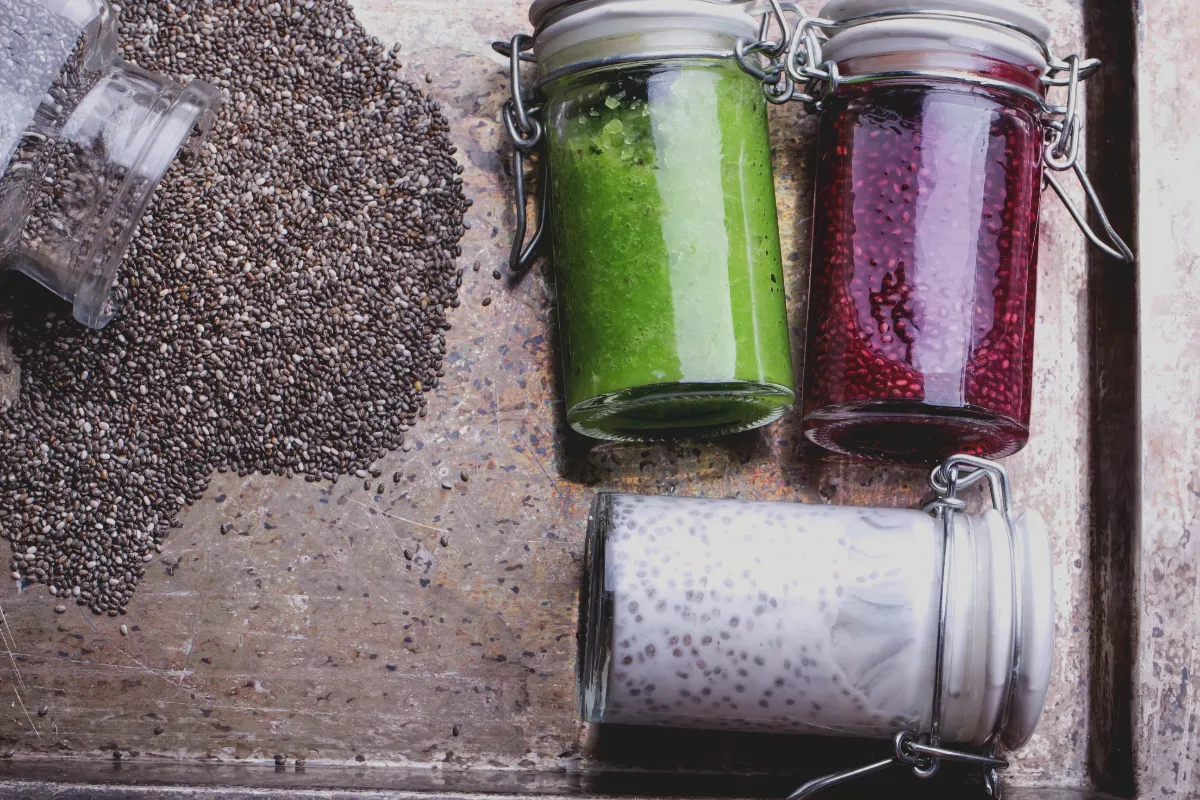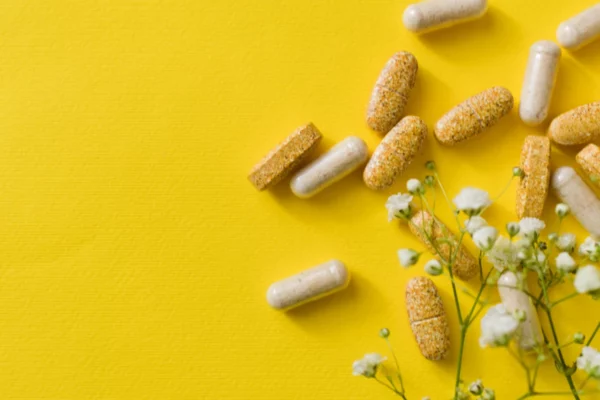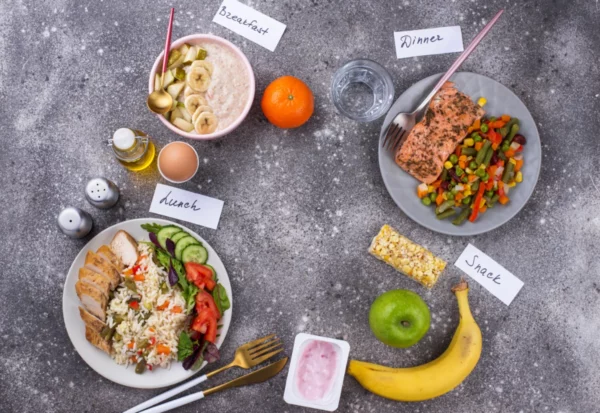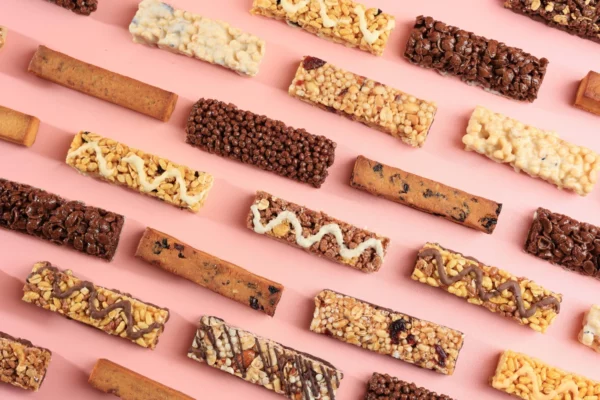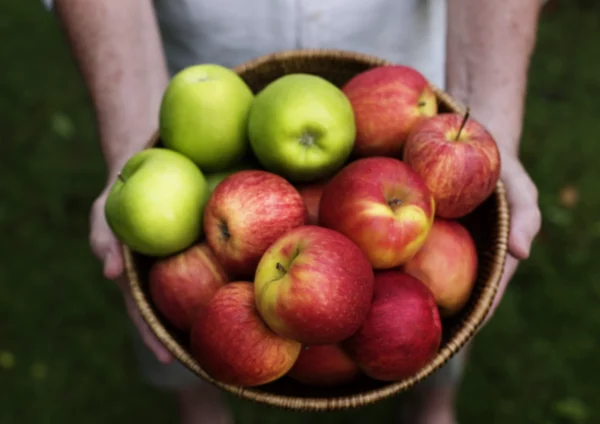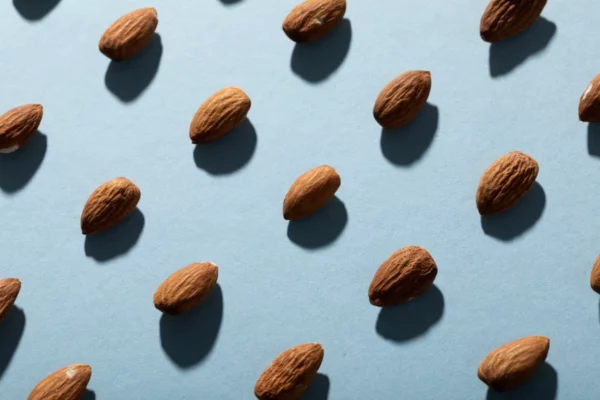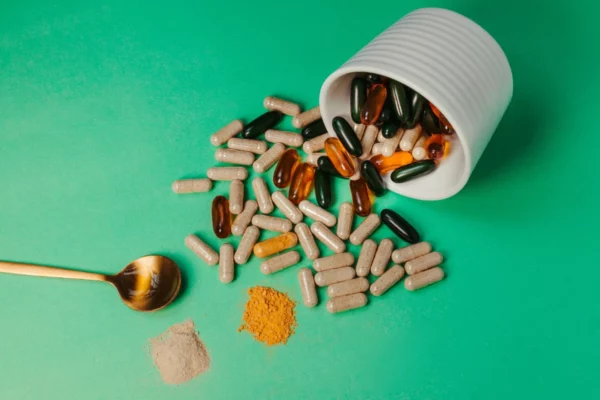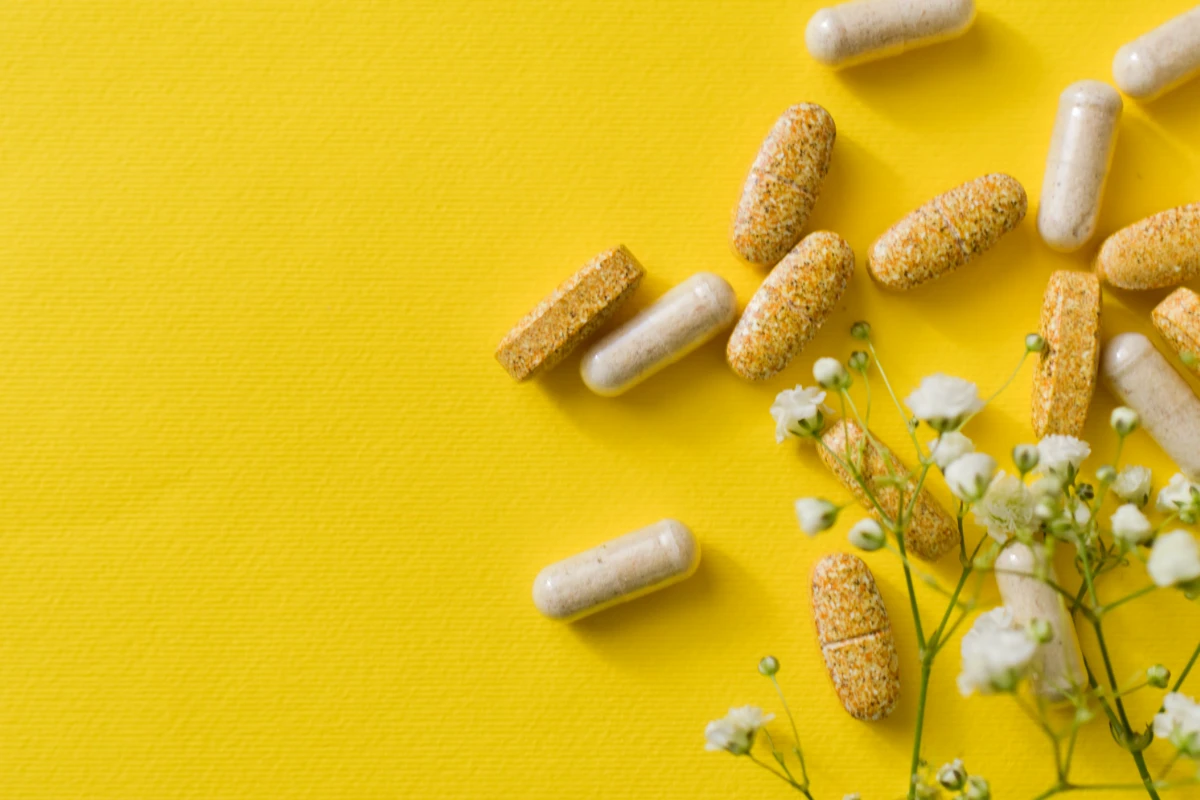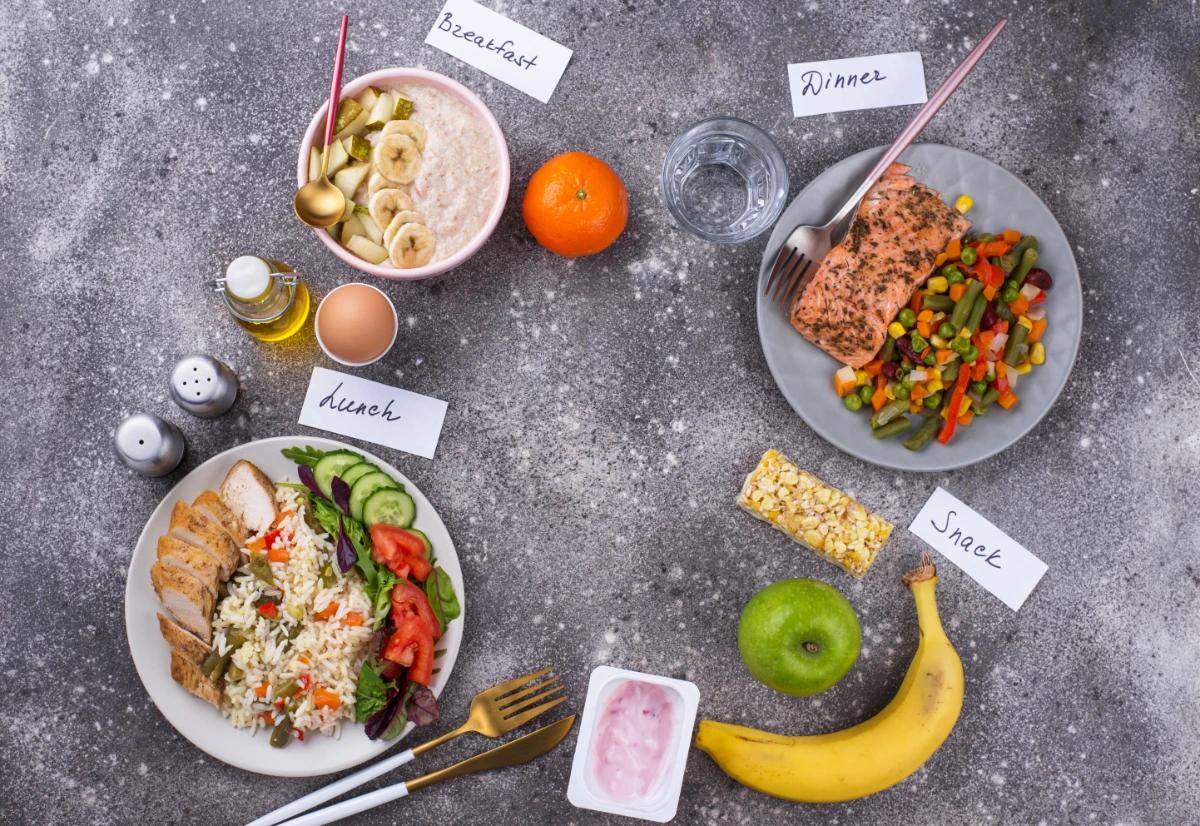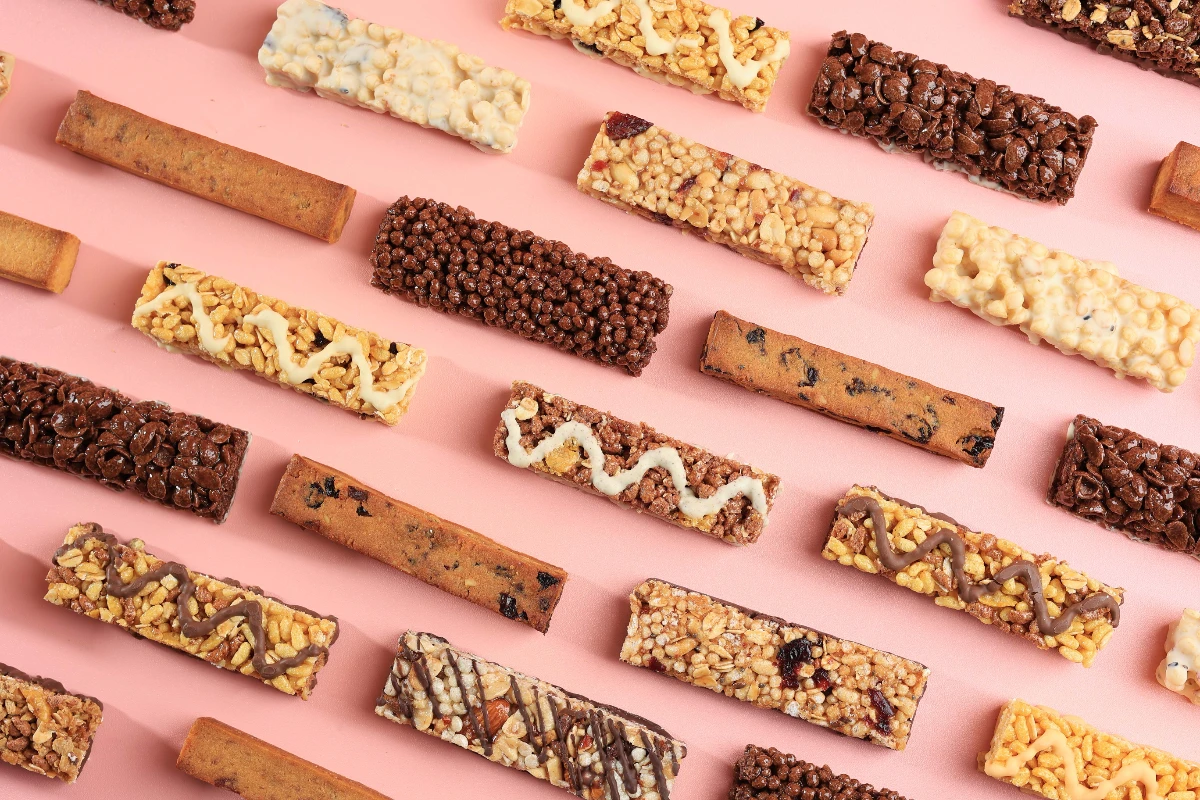Chia seeds (Salvia hispanica) are tiny black or white seeds originating from Mexico and Guatemala, where they were a staple food for ancient civilizations like the Aztecs and Mayans. Despite their small size, chia seeds are packed with nutrients, particularly dietary fiber, making them a popular addition to health-conscious diets today.
Chia Seeds are one of the top 50 High Fiber Foods for great health.
Key Takeaways
| Nutrient | Amount per 1 oz (28g, ~2 tbsp) | Health Benefit |
|---|---|---|
| Dietary Fiber | 10g | Supports digestion, helps with weight loss |
| Protein | 4.7g | Builds and repairs tissues |
| Omega-3 Fatty Acids | 4.9g | Anti-inflammatory, heart health |
| Calcium | 180mg | Bone health |
| Magnesium | 95mg | Muscle function, mood stabilization |
| Antioxidants | High | Fights oxidative stress |
| Calories | 138 | Provides energy |
Dietary Fiber Content
Chia seeds are an excellent source of dietary fiber. A 1-ounce (28g) serving contains:
- Fiber: 10g (~35% of daily recommended intake)
- Serving Size Comparison: Two tablespoons of chia seeds contain about the same fiber as a medium-sized apple or a cup of cooked broccoli.
Chia seeds primarily consist of insoluble fiber which helps promote regular bowel movements and supports gut health. Their high fiber content also aids in satiety, making them a great addition to weight-loss diets.
Chia Seed Nutritional Information (Per 28g / 2 tbsp Serving)
| Nutrient | Amount |
|---|---|
| Calories | 138 |
| Total Fat | 8.7g |
| • Saturated Fat | 0.9g |
| • Omega-3 | 4.9g |
| • Omega-6 | 1.6g |
| Carbohydrates | 12g |
| • Fiber | 10g |
| Protein | 4.7g |
| Calcium | 180mg |
| Magnesium | 95mg |
| Phosphorus | 244mg |
| Zinc | 1.0mg |
Micronutrients and Vitamins
Chia seeds also contain notable amounts of:
- Calcium
- Magnesium
- Phosphorus
- Zinc
- B-Vitamins (especially niacin and thiamine)
These nutrients contribute to bone health, muscle function, and energy production.
Health Benefits of Chia Seeds
Chia seeds are packed with benefits for overall health:
- Supports Digestive Health: The fiber content promotes bowel regularity and helps maintain gut health.
- Heart Health: The high omega-3 fatty acids (ALA) help reduce inflammation, lowering the risk of heart disease.
- Weight Management: Fiber and protein create a feeling of fullness, which can aid in weight control.
- Bone Health: Chia seeds provide calcium, magnesium, and phosphorus, all vital for maintaining strong bones.
- Antioxidants: Chia seeds contain high levels of antioxidants that help neutralize free radicals in the body, protecting cells from damage.
Scientific Studies
A study published in Nutrition Research found that chia seeds may lower blood pressure and inflammation in people with type 2 diabetes . Additionally, research has shown that chia seeds can reduce triglyceride levels and increase HDL cholesterol .
Dietary Considerations with Chia Seeds
- Suitable for Vegans and Vegetarians: Chia seeds are plant-based and naturally vegan.
- Gluten-Free: Chia seeds contain no gluten, making them safe for people with celiac disease or gluten sensitivities.
- Keto-Friendly: Despite their carbohydrate content, the high fiber in chia seeds keeps net carbs low, making them suitable for low-carb diets.
- Whole30 and Paleo: Chia seeds are allowed on Whole30 and Paleo diets.
- FODMAP and SCD: Chia seeds are low in fermentable carbs, making them suitable for those following a FODMAP or Specific Carbohydrate Diet (SCD) for digestive health.
Chia Seed Culinary Uses and Flavor Profile
Chia seeds have a neutral taste, with a slightly nutty flavor when chewed. Their most notable characteristic is their ability to absorb liquid, forming a gel-like consistency. This makes them a versatile ingredient in a variety of recipes.
Common Recipes with Chia Seeds:
- Chia Pudding: Mix chia seeds with almond milk and let them sit overnight for a delicious pudding.
- Smoothies: Add a tablespoon to your smoothie for a fiber boost.
- Chia Fresca: Combine chia seeds with water and a squeeze of lemon for a refreshing, fiber-rich drink.
- Baked Goods: Use chia seeds in breads, muffins, or crackers for added nutrition.
- Salad Toppings: Sprinkle chia seeds over salads for a crunchy texture.
Storage Tips
To maintain freshness, store chia seeds in an airtight container in a cool, dark place, such as a pantry or refrigerator. Properly stored, they can last up to two years.
Frequently Asked Questions (FAQ)
- How much chia seeds should I eat per day?
It’s generally safe to consume 1-2 tablespoons (15-30g) of chia seeds daily. - Can chia seeds help with weight loss?
Yes, chia seeds are rich in fiber and protein, which help increase fullness and reduce appetite. - Are chia seeds good for diabetics?
Chia seeds may help regulate blood sugar levels due to their high fiber content. - How do chia seeds affect digestion?
The high insoluble fiber content promotes bowel regularity and supports a healthy gut. - Do chia seeds need to be soaked before eating?
Soaking chia seeds improves their texture and digestibility, but they can also be eaten dry. - Are there any side effects of eating chia seeds?
Eating too many chia seeds can lead to digestive discomfort, such as bloating or gas, due to their high fiber content. - Can chia seeds be eaten raw?
Yes, chia seeds can be eaten raw and sprinkled over salads, cereals, or yogurt. - How do chia seeds compare to flax seeds?
Both are rich in fiber and omega-3s, but chia seeds have a longer shelf life and do not need to be ground for absorption. - Are chia seeds safe for people with nut allergies?
Yes, chia seeds are not related to nuts and are generally safe for people with nut allergies. - Can chia seeds replace eggs in recipes?
Yes, a mixture of 1 tablespoon of chia seeds with 3 tablespoons of water can serve as an egg substitute in baking.
